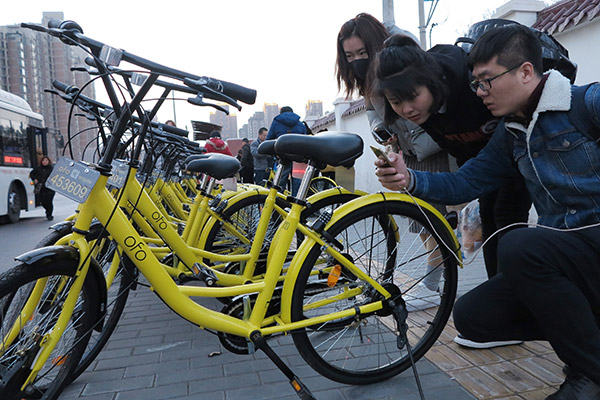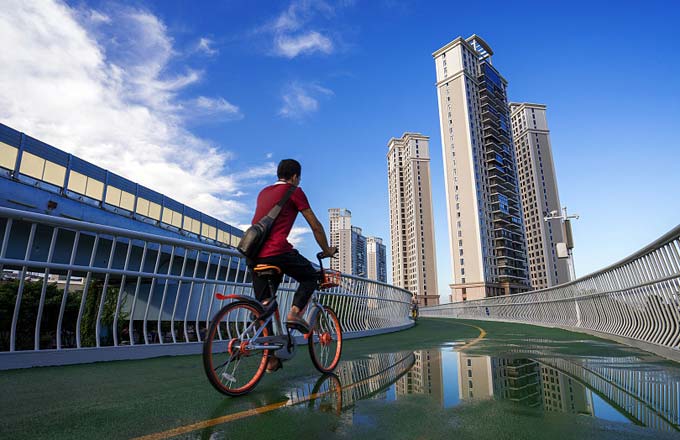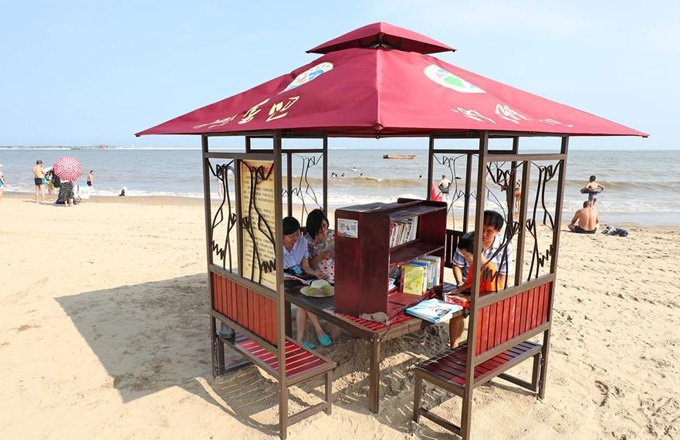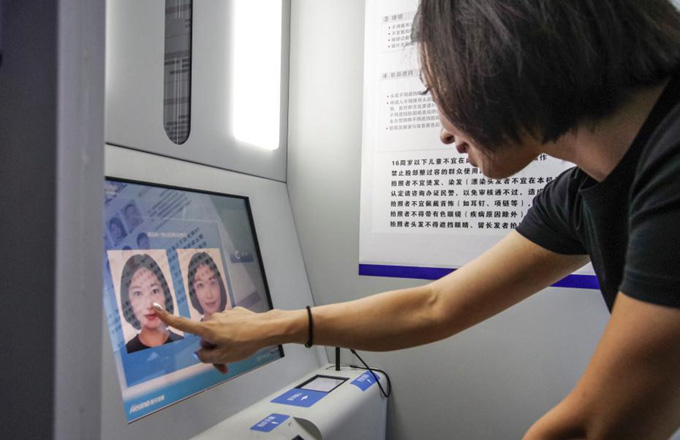Bike sharing gets national guideline
Issues such as parking, safety addressed while industry backed
The central government released a guideline on Thursday to encourage and regulate the booming bike-sharing industry, such as requiring real-name registration and barring services to children under 12.
|
 |
|
Riders scan ofo bikes in Xi'an, Shaanxi province. [Photo/China Daily] |
The guideline was issued by 10 government departments including the Ministry of Transport, Publicity Department of the Communist Party of China and the Ministry of Public Security.
Shared bikes play a positive role in meeting the public's need for "last mile" transportation, lessening urban transportation pressure and establishing a low-carbon transport network, according to the guideline.
Problems include improper parking and poor operations. It aims to improve service as part of regulating the market, the guideline said.
A draft was issued in May to solicit public input, and 780 opinions were collected.
Shared bicycles, from companies like Mobike, Ofo and Bluegogo, have popped up in cities since last year. Users can rent a bike at low cost, usually 1 yuan (15 US cents) an hour.
The services target mostly short-distance travel, such as between a subway station and work, or from home to the grocery store. They usually require a deposit for registration.
By July, China had nearly 70 companies running shared bike businesses, with a total of more than 16 million shared bikes on the street. Users' bike registrations surpassed 130 million, the Ministry of Transport said on Thursday.
A rainbow of shared bikes distinguished by company colors line many city streets, but in some cases, a lack of proper regulation has caused problems.
An 11-year-old boy riding a shared bike in Shanghai was killed in a traffic accident in March, prompting discussions on how to keep children from using the bikes.
Companies should take more responsibility for managing the industry in many ways, including being responsible for riders' safety and for the safety of users' personal information and deposits, said Yang Xinzheng, director of the China Urban Sustainable Transport Research Center under the China Academy of Transportation Sciences.
According to the Ministry of Transport, traffic safety regulations ban children under 12 from riding bikes on the street. Most of the companies' newly released bikes have a notice affixed about the age limit.
To solve the parking problem, municipal governments are required to improve the bike network, setting up parking areas for bikes and carrying out severe punishment.
Mobike, a leading company, has set up more than 4,000 smart parking areas. Xia Yiping, the company's chief technology officer, said users who park the company's bikes in those areas will receive coupons to encourage proper parking





















